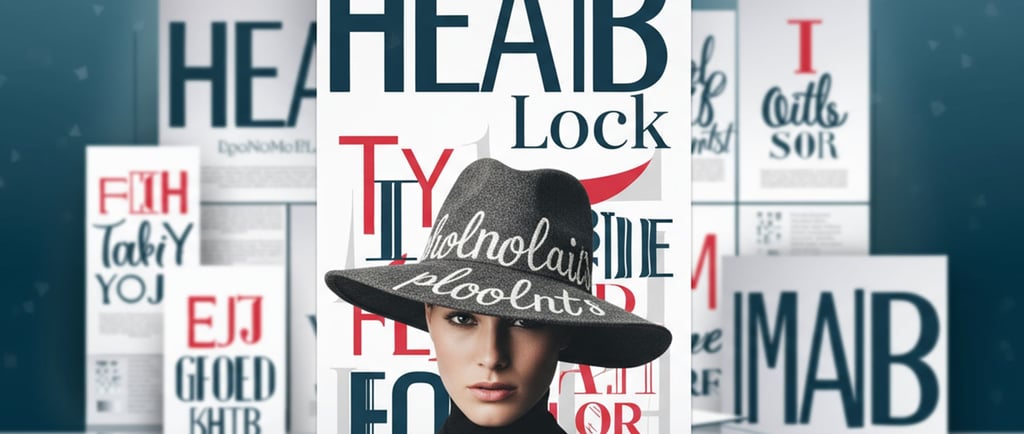Typography: Shaping Visual Communication
A brief guide to understanding the art and importance of typography in design.
FONT
Avinash
11/7/20251 min read


Typography is more than just choosing fonts—it's the art and technique of arranging type to make written language clear, attractive, and impactful. Good typography improves communication, enhances user experience, and supports brand identity.
Why Typography Matters
Type affects how people perceive and interact with designs. A well-chosen font guides readers, evokes emotions, and sets the tone—whether formal, playful, or bold. Even subtle changes in spacing or size can influence how easily text is read and understood.
The Basics of Typography
Font vs. Typeface: A typeface is a design (like Helvetica); a font is a particular style and size of that typeface (like Helvetica Bold, 12pt).
Hierarchy: Using different sizes and weights creates contrast and directs attention. Headlines grab eyes first, while body text carries content.
Alignment: Text can be left, right, center, or justified. Consistent alignment creates order and harmony within layouts.
Spacing: Careful management of space between letters (kerning), lines (leading), and words provides readability and aesthetic balance.
Color and Contrast: Color draws attention to key elements, while maintaining enough contrast ensures text is easy to read.
Choosing and Pairing Fonts
Select fonts that match your purpose and audience. For professional documents, choose clean, readable typefaces. Pair fonts thoughtfully—combine a bold headline font with a simple body font for contrast, but avoid using too many styles at once.
Best Practices
Stick to two or three fonts per project to avoid visual clutter.
Use size and weight to show importance, not just color.
Make sure text is readable at different sizes and screen resolutions.
Test your typography on real users when possible.
Conclusion
Thoughtful typography turns simple words into striking visual experiences. By mastering a few essentials, anyone can make their designs more effective and engaging—whether for print, web, or branding.
